Martine Leavitt and LDStorymakers have graciously agreed to let me republish Leavitt’s LDStorymakers Writers Conference keynote address, given on May 15, 2015. Martine Leavitt has published xight novels for young adults, most recently My Book of Life by Angel, a finalist for the Los Angeles Times Book Prize, a Junior Library Guild Selection, a Horn Book Fanfare book, a Booklist Best Book of the Year, and winner of the Canadian Library Association Young Adult Book of the Year. She recently published her first middle-grade novel, Blue Mountain (October 2014). Other titles by Leavitt include Keturah and Lord Death, a finalist for the National Book Award, Tom Finder, winner of the Mr. Christie Award, and Heck Superhero, a finalist for the Governor General’s Award. Her young adult novel Calvin comes out fall of 2015. Leavitt’s novels have been published in Japan, Korea, Denmark, Germany, Switzerland, Italy and the Netherlands. Currently she teaches creative writing to graduate students at Vermont College of Fine Arts, a short-residency MFA program. She is the mother of seven, grandmother of fifteen, and lives in High River, Alberta.
I live in and love two communities, but neither one knows much about the other.
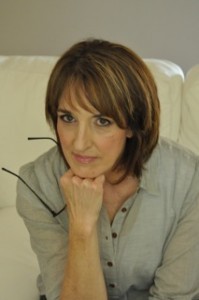
I would suspect that a large percentage of my beloved brothers and sisters in my ward family don’t know that I’m a writer. Of those who do know, I guess that while most may be happy for me if I’m happy, they really aren’t interested in my work. They love me, they care if I am a good person, if I’m healthy and well, but they don’t care much about my job. And this is as it should be. Of those small number who are interested or intrigued, fewer have read my books. They just aren’t readers, or they don’t have time. Of those few who have read my books, only two have expressed that they liked my books. And – and one of them is my visiting teacher.
She has to.
My other community is Vermont College of Fine Arts where I teach. All of my fellow faculty at the college share my love of literature, of writing, but they don’t really understand my identity as a Latter-day Saint. At the end of the day in the faculty lounge, after they have consumed their own glass of wine, they dicker over who gets mine. They read my books, they know my passion for language, my teaching life, they share my devotion to story, they love me and I love them. But they it would be difficult for them to truly understand how the gospel of Jesus Christ is my culture, my consuming priority, and how its doctrines permeate every story I write.
Here, among you, I feel that I am in a place where everyone will understand both of my worlds, here I trust I am with people who will understand both my writing self and my Latter-day Saint self, and I’m sort of blissing out over that. Because this may be my one opportunity to be with you, I thought carefully about what I could give you, what you might need from this talk. What does every writer need?
I looked over the class schedule and saw that today you could have taken classes in character – female, believable, likeable, despicable, cast of, and relationships between. You could have had classes in self-publishing, independent publishing, publishing models, editing, marketing and cover art. You could have studied writing a synopsis, writing from a headline, effective hooks, verbs, dialogue, point of view, plots, and how to write romance, speculative fiction, short stories, steampunk and middle grade. And finally a class on how to keep your head from exploding with all this information.
As writers we know we need never to stop learning about our craft. Every time we read a book we are learning because we are reading like writers, sensitive to the language and to the shape of story. We understand that we need a certain amount of discipline, showing up every day in some form or other to the work.
But I wonder if each writer also gets an individualized life curriculum designed to make her the best writer she can be, specialized life learnings that contribute to her development as an artist. What one writer really needs may be vastly different from the writer sitting next to her.
Virginia Woolf said that a writer needed “money and a room of her own if she is to write fiction.” The money was so she would have time to write and the room meant space to write. All Virginia Woolf needed was time and space.
I thought that was what I needed, too – time and a room of my own. In this talk I will tell you what I got instead.
The first thing I needed in my individualized curriculum was a little belief in myself.
I was not raised in the church, but after my little sister died when I was 20 years old, I found my way to the church of my heritage, the Church of Jesus Christ of Latter-day Saints. I was amazed by how talented everyone was in this new Mormon world of mine. My sisters cooked beautiful meals. They taught me how to score a cucumber with a fork before cutting it up in my salads, turning every slice into a fresh cucumber flower. In forty years since I have never failed to score my cucumbers before eating one. Other than that, however, I still only do industrial strength cooking.
My sisters could sew dresses and make quilts. I have four sons and have finally learned how to sew on a Scout badge. It looks awful from the back, but it stays on. My sisters made beautiful home decorative items out of garbage and buttons and bits of string. They could sing and play the piano and the violin and run a Relief Society meeting. They ran ironman races and taught seminary and decorated gymnasiums into wedding fantasy lands. I can’t decorate a Christmas tree – every year I try to convince my family how nice it would be to have a tree that looks just like the ones in the forest. As a young member, I was dazzled and even at times depressed by everyone’s skills and abilities. I felt like a primitive in a land where I struggled to learn correct cultural practice. The scripture taught me that I had a talent, and that I should be developing it, but the prospects appeared bleak.
I believe it was a visiting teacher who finally said to me, “Well, Martine, what do you like to do? Because if you like it, that might mean you have a talent for it.”
I thought about that. I didn’t like much. I loved to read, and growing up I had liked to write stories just for fun. I never finished or kept anything… I liked writing, but it felt like an impossibly long stretch to take that as meaning I had a talent.
Still, after that, I began to write here and there, this and that, and I tried to believe that I had a talent, though all evidence proved against it. Then I read a quote somewhere that went something like this: Talent is a dangerous word, because if you believe you have it, you might not work as hard as you need to work in order to write the most beautiful books inside you. And if you believe you don’t have it, you might give up to make way for those who you think have a gift. Gifts truly come to those who work hard.
Well, I thought, maybe I couldn’t drum up an actual talent out of this rudimentary desire, but that quote helped me think that if I worked at it, I could fake it.
So, in the small moments of my day, I began to scribble small things. I would write a paragraph or a page, and the next day I would pick it up and discover that it was dreadful, that it was not what I had meant at all. I would throw it away. This went on for a few years. Write something one day, throw it out the next. I read somewhere that you shouldn’t throw out anything you write, but that wasn’t writing. It was drivel. I was humbled by my inadequacies. Somehow, however, unlike with crafts and quilts, I didn’t want to give up. The trying alone held as many satisfactions as the frustrations.
Of course, try as I may, I knew I wasn’t a real writer at all – I was just faking it. Real writers were born writers. Real writers were driven from a young age – they didn’t begin because of a scripture about talents. Real writers had at least one degree. I had none. Real writers lived in New York City, not High River, Alberta. Real writers wore black, not maternity clothes. I wasn’t smart enough, talented enough, or special enough, to be a real writer.
Now I was carefully instructed by my estimable friend Chris Crowe not to be too churchy in this talk, but here I have to say that my understanding of my eternal parentage and divine destiny was a good antidote for these incorrect feelings. The mind-blowing truth is that we, as children of the creator of the universe, are capable of anything, so long as He approves. An important component in my progress as a writer was that life-changing process of believing in my divine nature, and thus my divine abilities.
Now let me say here that most of my colleagues at Vermont College do not share my beliefs, and yet they write award-winning novels. That is because they are real writers. But it appears that the result is the same.
Believing in myself was the first necessary beginnings of my journey as a writer. Many of my students at Vermont College have been writing for years and have worked hard and they are just so good. And I tell them they are talented… and they weep… because they are believing it for the first time. Believing they have talent gives them a certain responsibility to it. Believing in myself and putting in the hours was the first thing I needed as a writer, and perhaps this is something every writer needs, even geniuses like Virginia Woolf. Believe, believe in yourself.
Another essential learning in my journey to becoming a writer involved a long schooling in humility.
One day, almost by accident, I wrote a little story for children. It was the first thing I had ever finished. The next day I read it and I didn’t throw it away. I still liked it! I will never forget that triumphant moment. The story was exactly what I meant. It might have been even a bit… charming. And that, of course, must mean it was publishable! I mailed it off to the Children’s Friend, as it was called then. I waited for my cheque to arrive. Instead, of course, I got a rejection letter.
Well, my story must have met with a grumpy and uninspired editor, I decided. So I wrote another story for the Children’s Friend. It, too, was rejected. I wrote several more stories for the Children’s Friend, all of which were rejected. Years later I taught a workshop in which an editor/writer from the Children’s Friend was a participant. I looked at him, a handsome, kindly gentleman with a soft voice who, as it turns out was not only gracious-souled but a stellar writer. I determined that it would be against my religion to exact my revenge upon him. I still wish someday to find time to write another story for The Friend in the hopes it will be published. All my ward family would be proud of me and realize I had finally made it in the writing world.
After these rejections I realized that I had to do more than make the words say what I meant. I realized that perhaps I should attempt to be a little bit interesting, a little entertaining, even. Maybe I could try to write something, shall we say, original. Maybe I should think less about my cheque in the mail and more about my reader.
So yes, it was essential for me to learn humility. I have learned, and this is just as true for my colleagues at VCFA who have received every kind of success, that writing is a continual exercise in humility. I have learned to be humble before my art, now, without being compelled.
So I had had two lessons in my individualized curriculum for becoming a writer: a little belief in myself brought about by effort and faith, and a lot of humility and thought for my reader. I hoped that the third thing would be time. Everyone needs time if Virginia Woolf needed time. But as it happens, the third thing I needed to become a writer was many children. Which is the opposite of time.
When my fourth baby was born, I had less time than ever, and I wanted time more than ever before. As soon as I put the little ones down for a nap, I felt an urge to run away, to run very far away, so long as I could be back by the end of naptime. As counter-intuitive as it may sound, it was when I had four babies that I made a commitment to show up to my writing every day without fail, even if it were just for a few minutes.
Soon I welcomed baby number five and baby number six, and at that time my oldest was nine years old. I tried to keep that commitment to show up to my writing every day, even if just for a few minutes, and most of the time it was a very few minutes indeed. One of my favorite tricks was to put a few of the little ones into a bathtub of warm water and bubbles and let them play while I sat on the toilet lid and wrote. My pages were damp, but still somewhat legible.
I couldn’t write to a certain word count, or a certain number of pages. Nothing could be guaranteed. But I needed to write myself soul-fed and happy. I discovered that I didn’t need to write a lot to be happy, I just needed to write something good. I found that even a single perfect, beautiful sentence with perhaps a fresh and compelling image, could make me feel nourished and ready to take on the burgeoning masses.
Having my children was the best thing I did for many reasons, including that it taught me to write a single, perfect sentence. Having a big family forced me to make every second of my writing time count. It taught me to write spare and taut, to write each word as if it were special, precious, to write a sentence that nobody else in the world had written. That became very good training for me.
Katherine Paterson was asked, as a mother of four and a pastor’s wife, how she managed to write with all those interruptions and responsibilities. She replied that without these obligations, she would have nothing to say. She said that other demands on her time gave structure to her life, and this helped her as a writer.
This was absolutely true for me.
I will confess that those few minutes of writing time never seemed like quite enough. I wasn’t as philosophical about it at the time as I am now, and I admit that I longed for the day when my last baby would go to school and I would finally be able to sit in silence and write for a significant amount of time.
Being a mom and a writer forced me to make tough decisions. When my children were little, I had to decide if I was going to head up the hot lunch committee or write. Was I going to accept a nomination to be president of the Parent-Teacher Association, or was I going to write. Could I make a thousand paper carnations for middle-school grad, or would I write? Compared to all the Supermoms I knew, I failed my children on an almost daily basis. I worried that they would all grow up to be juvenile delinquents.
I can tell you that the story has had a happy ending. All of my adult children turned into educated, faithful, constructive, upstanding citizens of the world – not an axe murderer among them, although the youngest is seventeen and still has time. While my children have all eschewed the world of artistic expression and have opted for well-paying corporate-type jobs, they do head up the hot lunch committee and are just good decent people. I think it’s more likely your children will turn out just fine precisely because they have a happy parent who is happy because she writes. In the long run, probably no one will suffer because of your writing.
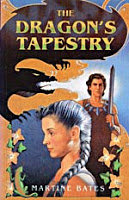 But back then I did dream about more time. When that sixth baby turned three I wrote a draft of my first novel and thought about what I would do with it when he was in kindergarten. When he turned four years old, I found a Canadian press that wanted to publish my book.
But back then I did dream about more time. When that sixth baby turned three I wrote a draft of my first novel and thought about what I would do with it when he was in kindergarten. When he turned four years old, I found a Canadian press that wanted to publish my book.
That same year I became a single parent.
I had custody of the children. I was not receiving child support payments, and my advance for my first book was a hefty $1000. I needed a job. I applied for a job at a local cattle slaughterhouse because I had no marketable skills. The slaughterhouse wouldn’t hire me.
I tried to find a way to make this part funny, but let’s face it, slaughterhouses just aren’t that funny.
In a time of desperation, I was led to a way to go to school, and was given another course in my individualized journey to becoming a writer: education. For the next few years I read the best books. I improved my taste in literature, refined my palate, studied theory, and understood what great books could do. For several years as I attended school I only wrote essays, until finally I received my undergraduate degree.
Writer and essayist John Gardner wrote, “Long and devout study of Christ’s life and works has given the believer a model of behavior too subtle and complex for verbal expression, but nonetheless trustworthy. In the same way, fiction provides, at its best, trustworthy but inexpressible models. We ingest metaphors of good, wordlessly learning to behave more like Levin than like Anna, more like transformed Emma than Emma on page one. This subtle, for the most part wordless, knowledge is the truth great fiction seeks out.”
Great fiction. That was the gift of my education, and a necessary element in my progress as a writer.
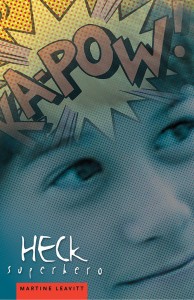
I wrote my third novel as my honors thesis for my undergrad, and near the end of my schooling was blessed to remarry to a wonderful man. I had a ton of student loans to pay back, so I got a full time job. I wrote my fourth book, Dollmage, on my lunch hours in my office. By now my children were between the ages of eight and eighteen. While I was working I became pregnant with my seventh child. I wrote my fifth book, Tom Finder, while I was on maternity leave. While my baby was still a toddler, I attended Vermont College of Fine Arts, a short residency MFA program, and wrote Heck Superhero and Keturah and Lord Death for my creative thesis. When I graduated from VCFA, I went back to full time work as an editor in the marketing department of a technology company. I rewrote and revised Heck and Keturah on the commuter bus.
Still, every day, I still longed for time and a room of my own.
One day a son went on a mission, a daughter married, and another daughter went away to school. For the first time I could move a desk into a bedroom and call it my office. No longer would I write on the sofa or at the kitchen table. I would have that room of my own! I moved the desk in, admired it from the doorway, sat down to write… and found I couldn’t think in all that order and silence. I never went in that room again to write.
Still – time. I needed more time.
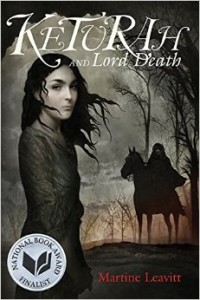
I continued to write on the commuter bus to work, but it never seemed to be enough time to think and begin a new book. Two years went by when I didn’t write anything, or at least anything worth keeping. The money from my published books had become more lovely than my $1000 days, but it was never enough to quit work.
After working for five years, I got a phone call from Vermont College, asking me if I wanted a job teaching there. I was thrilled. I would be able to work part time, mostly from home. At last I would have the time to write I had been craving. I gave my notice and attended a farewell party on my last day.
The following Sunday my husband and I were called into the Bishop’s office, where I was called to be the new Relief Society president.
Perhaps you will think at this point in my talk I will quote somebody like Vince Lombardi who once said, “The difference between a successful person and others is not a lack of strength, not a lack of knowledge, but rather a lack of will.”
This is irrefutable proof that Vince Lombardi has never been a Relief Society president.
But the Lord knew I needed one more thing to become the writer I wanted to be, perhaps the most essential ingredient of all, and that was love…. a new type of love, taught to me by example and precept by my beloved brothers and sisters, and learned most practically by serving diligently over a protracted period of time. We don’t have to be Relief Society presidents to learn to love, of course – for many this kind of charity and love is sweetly simple and intuitive. As for me, I needed a crash course. I had been trying to learn love all along, but this calling was an education of a unique kind. John Gardner said, “At heart all fiction treats, directly or indirectly, the same thing: our love for people and the world, our aspirations and fears.”
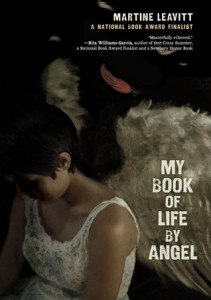
Poet Ralph Angel said, “By attending to things and beings, one forgets about oneself, and travels some distance. Language becomes voice in that open space.”
Writers who love are curious about others – they ask questions. They observe without judgement. They try to understand – how can we write about people other than ourselves if we are not constant and ready students of humanity? The less time we spend thinking about ourselves, the more time we have for thinking about the wonder and the mystery of this thing we call life, which is the subject of every story. If we are taking our own pulse all the time, when will we hear the hearts of other people?
The great Henry James said, “Three things in human life are important: the first is to be kind, the second is to be kind, and the third is to be kind.” This is what makes a writer the calibre of Henry James. We must love the world in groups of one. Pam Houston counseled us to bring so much compassion to the page it might kill us.
Of course, it is difficult work to love. Often we fail. In our awareness of our weakness and hard-heartedness, we find empathy and compassion for our villains.
If we are not very good at loving, we must change. Louisa May Alcott said, “Love is the great beautifier.”
I wrote My Book of Life by Angel during my time as Relief Society President. I had to write in such small increments of time that my prose looked and sounded much more like poetry than prose. One day I realized that the novel in verse and the fractured narrative was the best possible form to reflect the content of my book. Between Keturah and Lord Death and My Book of Life by Angel were six long years. It was a small book written with great love. As it turns out, learning to love better was something I needed more than time. What did I need to become the writer I needed to be? I needed belief in myself, I needed humility, the influence of the best books, and many children. And I needed to learn love.
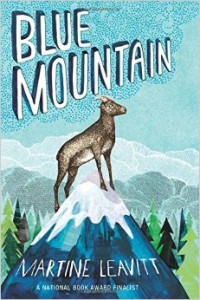
I believe that every one of us has exactly what we need to succeed, or, if we don’t yet, we will have it if we persist. I’m getting old now, and I hope I’ve learned that this is exactly what I need for my next book – the slowness that could be seen in a kinder light as methodical, the need to make every word count because I don’t know how many I have left. I hope with age I have learned enough about myself and the world not to have any desire to judge – not people and not fictional characters. I believe I have exactly what I need for the next book, and I believe that you do, too.
The very things that appear to be obstacles may be the very thing we need to make our first book or our next book the best book we can write.
Now forgive me if I say one or two more things before I conclude, but I have opinions.
I’ve read a couple of articles lately that have tried to explain to me what it is I need in order to write. Mark Oppenheimer from The New York Times wrote an article some time ago titled, “Mormons Offer Cautionary Lesson on Sunny Outlook vs. Literary Greatness.” This article suggested that if I could only get rid of my sunny outlook, I could be the next Shakespeare.
I was confused by the premise of his argument, which began with the assumption that highbrow writing (his term, in itself an unfortunate one), did not include genre fiction – Ursula leGuin, JRR Tolkien, CS Lewis, and Margaret Atwood, to name a few, would probably beg to disagree – and it did not include children’s and young adult literature. So I admit that I disagreed with the definition of Mr. Oppenheimer’s terms from the get-go. He ended his article in the standard and clichéd way by interviewing the one disaffected Mormon he could find who had obviously left his sunny outlook behind, but sadly had still not yet become Shakespeare.
I also read an article about an interview with the great Wallace Stegner, who wondered when the “Great Mormon Novel” would be written. Stegner thought that it would happen after a period of consolidation, after the diminishing of our “closed society.” I thought that was an interesting term, given that I’ve never seen a society that welcomed people with more open arms. Setting that aside, Stegner thought this great Mormon novel might be written by someone who had been raised in the church, then left the church, then made it part way back.
The writer of this article wrote, “Since that day with Stegner, I’ve thought often about LDS novels. And I’ve reached the conclusion that Stegner hadn’t found the Great Mormon Novel because there can never be one.” He explained this extraordinary statement this way: “There is precious little wiggle room for devout LDS writers. There aren’t a lot of gray areas to explore. The Mormon religion demands a lot of people – demands all of one’s talents to the furthering of the Kingdom of God. That means a complete surrender of one’s ego, ideas and ambitions. A true LDS writer wouldn’t want to be defiant.”
I would reply to these gentlemen, first of all, that surely there is no one Great Mormon Novel. The story of Mormonism is the story of how it works miracles in the hearts of each individual, and that would mean that every story we write, every story honestly and artfully written, is a story of Mormonism. But even if we cannot agree on the definition our terms, I can assure him that within the doctrine of the restoration is all the room we need to make the greatest works of art. Defiance is not the key to the great Mormon novel, or essential to any great work of art. Flannery O’Connor was not defiant. Marilyn Robinson is not defiant. They are two of the greatest writers of modern times, in my mind, both deeply religious and quite able to hold their heads high in the company of Shakespeare and Milton. It isn’t in living the gospel less well that we will discover greatness, but in living it better.
Alice Walker, author of The Color Purple, said, “Deliver me from writers who say the way they live doesn’t matter. I’m not sure a bad person can write a good book. If art doesn’t make us better, then what on earth is it for?”
Furthermore the Latter-day Saints in my world, in spite of our best efforts, are quite familiar with gray in our lives. A complete surrender of our egos, ideas and ambitions? Maybe the Utah saints, but where I come we have not managed to attain any such pinnacle of perfection. I am happy to assure him that, if that’s what is really needed, many of us have all the ego, ideas and ambitions we need to write and write and write. But in my opinion, if there lives a Mormon out there who truly is able to surrender her ego and ambitions while she sits down with her pen and paper… well, she will write circles around those of us who can’t. Nothing makes a writer better than to purge her ego and ambitions. As for ideas, I find the Lord is an idea machine and quite willing to share some with me.
The writer of the article concluded that he was sure LDS writers would produce wonderful novels. “But a grand and glorious literary novel that is heralded by both the LDS faithful and the literary world? I don’t think so.”
But I do think so. I think he thinks so, too, and was just throwing down the gauntlet when he wrote this article. In fact, the world is hungry for just the books we can write. The eternal perspective that makes us optimistic and hopeful and sunny, if that is really what we are, is just what we need to write great stories, stories that matter.
Both these articles seem to suggest that we need darkness to write great things, and there is some truth in that. We must pursue and name the darkness the way Ged pursued and named his Shadow before he could conquer it. It is not gray areas that are interesting, but darkness shot through with light, light reflected into the corners that nobody has seen before. Darkness is and will be. Darkness cannot and should not be ignored, but it is light that makes a soul and a book great. He said that our faith demands all of one’s talents to the furthering of the Kingdom of God, but writing that next book we have in mind, reaching for perfection, reflecting light into the dark corners, will indeed further the Kingdom. We serve a different community, a reading community, but we serve.
Percy Shelley said, “The great instrument of moral good is the imagination.” You and I have been promised in the Doctrine and Covenants that if we are humble and without guile, we shall mount up in the imagination of our thoughts as upon eagles’ wings.
No matter good or bad, every story I’ve written has made me a better, more moral, more compassionate person, and if I am not as moral and compassionate as I should be, it is only because the Lord had poor material to work with. Every story I’ve written has brought the joy of living intimately in the mind of another being, and loving them, and giving voice to the voiceless.
John Gardner said, “In all great fiction, primary emotion must sooner or later lift off from the particular and be transformed to an expression of what is universally good in human life – what promotes happiness for the individual alone and in society.”
Ultimately writing has been my way of being alive in the world, my way of worship, my way of making meaning of life, my way of being better and being happy.
If all we manage to do with this creative endeavor is to make a work of art of ourselves, then we have done the most important thing, and we can hope that Jessamyn West was right when she said, “Writing is so difficult that I feel that writers, having had their hell on earth, will escape all punishment hereafter.”
You and I have everything we need before us. We simply need to recognize it, be grateful for it, work with it, and write.
Thank you.

Love this: “It is not gray areas that are interesting, but darkness shot through with light, light reflected into the corners that nobody has seen before.”
Also this: “I think it’s more likely your children will turn out just fine precisely because they have a happy parent who is happy because she writes.”